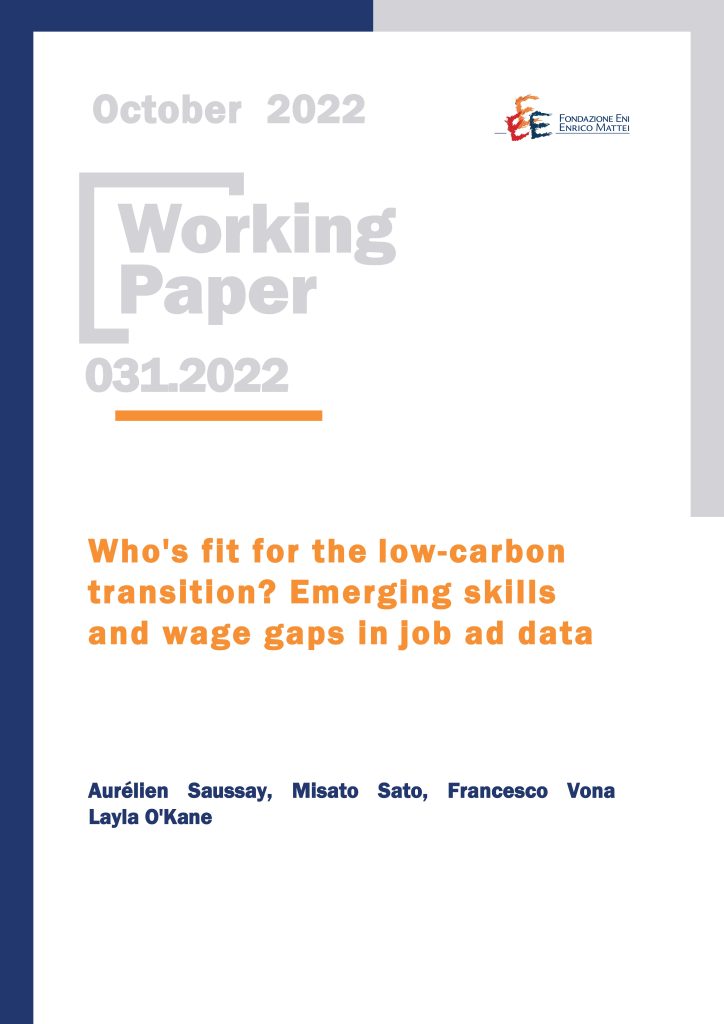Who’s fit for the low-carbon transition? Emerging skills and wage gaps in job ad data

27.10.2022
Aurélien Saussay (Grantham Research Institute, London School of Economics and Political Science and OFCE, Sciences Po); Misato Sato (Grantham Research Institute, London School of Economics and Political Science); Francesco Vona (University of Milan, Fondazione Eni Enrico Mattei and OFCE, Sciences Po); Layla O’Kane (Lightcast)
J23, J24, J31, Q52, Q54
Low-carbon jobs, fossil-fuel jobs, skill gaps, job vacancy data, green wage premium, distributional effects, low-carbon transition
As governments worldwide increase their commitments to tackling climate change, the number of low-carbon jobs are expected to grow rapidly. Here we provide evidence on the characteristics of low-carbon jobs in the US using comprehensive online job postings data between 2010-2019. By accurately identifying low-carbon jobs and comparing them to similar jobs in the same occupational group, we show that low-carbon jobs differ from high-carbon or generic jobs in a number of important ways. Low-carbon jobs have higher skill requirements across a broad range of skills, especially technical ones. However, the wage premium for low-carbon jobs has declined over time and the geographic overlap between low- and high-carbon jobs is limited. Overall, our findings suggest the low-carbon transition entails potentially high labour reallocation costs associated with re-skilling and earning losses, indicating public investments in skills is needed to deliver a smooth and rapid transition.
***
Suggested citation: Saussay A., Sato M., Vona F., O’Kane L., ‘Who’s fit for the low-carbon transition? Emerging skills and wage gaps in job and data’, Nota di Lavoro 31.2022, Milano, Italy: Fondazione Eni Enrico Mattei
